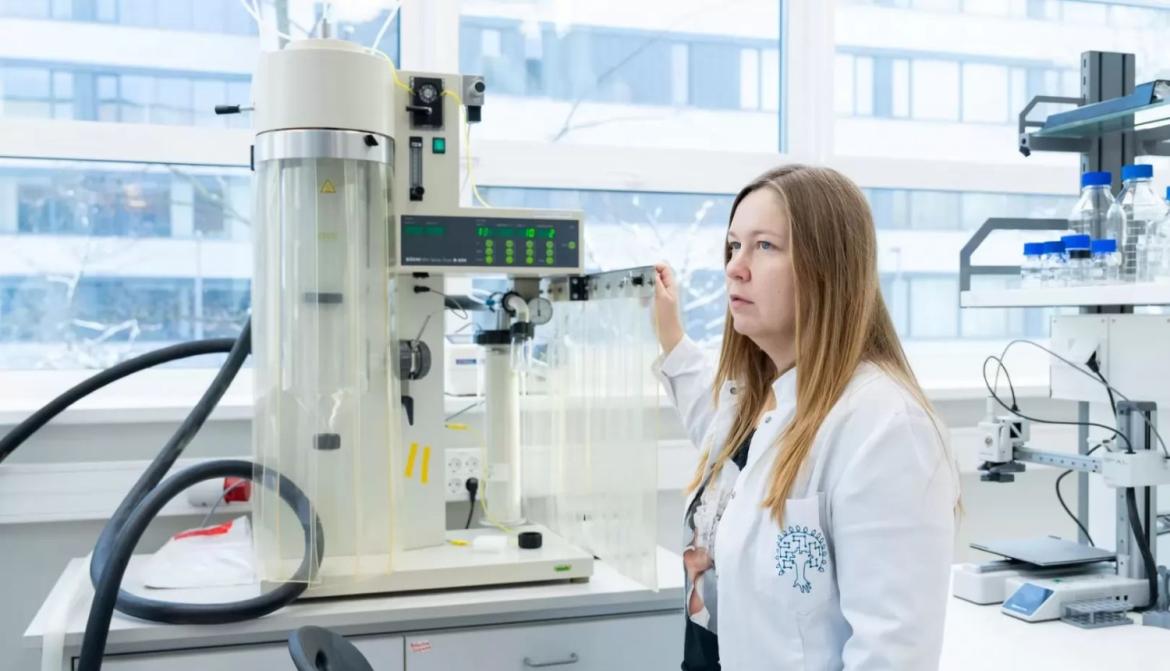“In the first call of BioPhoT, Riga Technical University (RTU) research teams have received a total of €1.8 million to translate nine scientific results and technologies into practical solutions for biomedicine, photonics, sustainable chemistry and smart engineering.
200 000 will be allocated for the development of each project. This will allow a targeted increase in technology readiness by at least one level. This is a direct contribution to productivity and the creation of science-intensive start-ups, as well as to the greater resilience and competitiveness of the Latvian economy in the global network.
The funding is not just about developing technologies in the lab - it is a bridge to practical applications: implementing pilot projects in industry, protecting intellectual property, developing commercialisation strategies and international cooperation.
“The next challenge is to focus on helping teams move from the lab to validating technologies in real-world settings, to strengthen collaboration with industry, and to purposefully raise the technological readiness of innovations from concept to practical solution. This means building prototypes, testing solutions outside the lab, preparing patent applications, equipping teams with business competences, taking practical steps in market research and fostering international cooperation,” emphasises “Andris Baumanis, coordinator of the BioPhoT mentor network.
Biomaterials for infection control and rapid bone regeneration - “BIOCORE”
Infections and slow bone regeneration are a major problem in medicine, especially after trauma or surgery. Existing materials are often unable to simultaneously inhibit infection and stimulate bone regeneration. The project is developing next generation biomaterials with antimicrobial properties that simultaneously promote bone healing, giving the public access to safer, more effective treatments towards faster recovery.
The project team is led by Professor Dagnija Loča from the Institute of Biomaterials and Bioengineering, Faculty of Science and Technology, RTU.
Robust EMI protection for high-integrity cyber security solutions
Electromagnetic interference can cause data loss and damage equipment. Currently, there is a lack of effective, sustainable protective materials to guard against this. The project is developing a new coating that protects devices from electromagnetic interference, ensuring their stable and reliable operation. The result will be more reliable cyber security solutions.
The project team is led by Sergey Gaidukov, tenure professor at RTU Faculty of Science and Technology.
Latest generation blood collection barrel for bone regeneration procedures
Bone regeneration procedures require high-quality biomaterials, which are supplemented with blood components during surgery. Existing blood collection tools often limit the quality of results. In this project, scientists are developing a new barrel that improves the preparation and use of biomaterials and blood components. This will allow safer and more accurate procedures, reducing the risk of complications.
The project team is led by Arita Dubņika, Senior Researcher at the Institute of Biomaterials and Bioengineering, Faculty of Science and Technology, RTU.
Technology for converting waste tyre rubber into a smart additive to improve asphalt concrete recycling - RE-TECH-ROAD“
Tyre recycling is dominated by low-value-added solutions and some practices create additional environmental risks. The project proposes a new approach - reactive extrusion technology - to create a smart, multifunctional modifier. Its addition to road construction materials will renew ageing bitumen, improve self-healing and promote the recycling of tyres and asphalt concrete, thus creating more durable and sustainable roads.
The project team is led by Associate Professor Viktors Haritonovs from the Institute of Civil Engineering, Faculty of Civil Engineering and Mechanical Engineering, RTU.
Development of an innovative sink disinfection device against AMR micro-organisms - “B-Shield”
Antibiotic resistance is a global problem that spreads dangerous micro-organisms, especially in hospitals. Traditional disinfection solutions do not always provide sufficient protection. The project develops a device that integrates into sinks and automatically kills micro-organisms, thus reducing the risks of spreading infections and improving public health.
The project team is led by Brigita Dejus, Senior Researcher at the Institute of Water Systems and Biotechnologies, Faculty of Science and Technology, RTU.
Optical filtering based fibre Bragg grating sensor transducer
Engineering structures and equipment need accurate monitoring of loads and deformations, but existing solutions tend to be expensive and bulky. The researchers propose a compact and affordable optical transducer that provides high-precision measurements. The benefits are safer buildings, more reliable technology and wider availability of sensing technologies.
The project team is led by Andis Supe, Senior Researcher at the Institute of Photonics, Electronics and Electronic Communications, Faculty of Computer Science, Information Technology and Energy, RTU.
Establishment of a virtual testing laboratory for wooden materials and structures - VIWO-LAB“
Real tests on timber structures are expensive and time-consuming, so the researchers are developing a digital testing environment that can be used to simulate and test solutions before construction. This shortens the path towards safe, resource-efficient and sustainable projects.
The project team is led by Jānis Šliseris, Senior Researcher at the Institute of Civil Engineering, Faculty of Civil Engineering and Mechanical Engineering, RTU.
Detection and monitoring of clinically relevant biomarkers using sweat analysis - “SwyCard”
Traditional tests - especially for newborns - are invasive and carry additional risks. Researchers are developing a non-invasive diagnostic platform that detects clinical biomarkers in sweat, allowing real-time monitoring of health status and early detection of problems.
The project team is led by Kristaps Kļaviņš, Senior Researcher at the Institute of Biomaterials and Bioengineering, Faculty of Science and Technology, RTU.
CO₂ filter from recycled construction waste
The researchers propose solutions to two environmental challenges - CO₂ emissions and construction waste. The project develops a filter capable of capturing CO₂ using recycled building materials. The solution reduces climate impacts and gives new value to waste.
The project team is led by Māris Šinka, Senior Researcher at the Institute of Sustainable Building Materials and Engineering Systems, Faculty of Civil Engineering and Mechanical Engineering, RTU.
